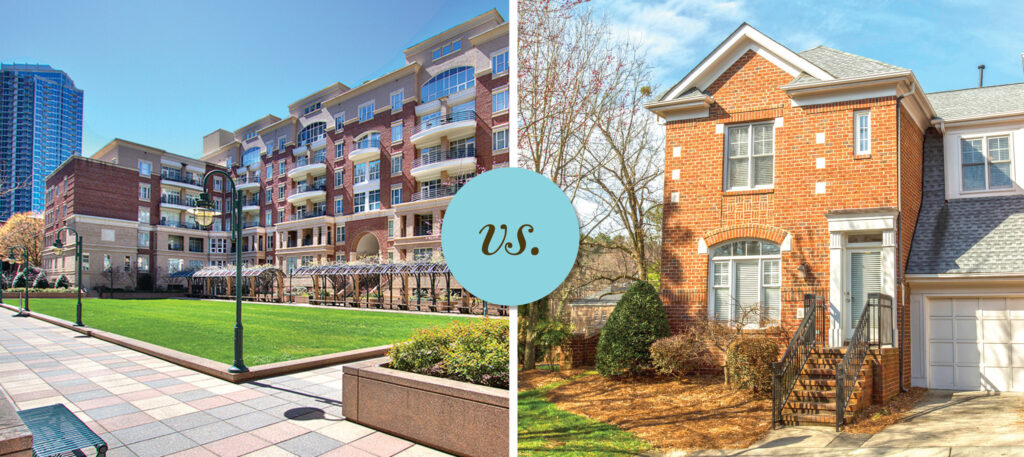Condo Association vs. Townhouse: How to Determine

You’ve begun making the first steps in ensuring that your place of living is properly covered, but you’ve run into a bit of confusion in the process. Is your housing community a condominium or a townhouse?
By definition, a condominium is a building or complex of buildings containing a number of individually-owned apartments or houses. A townhouse, however, is a single family unit constructed in a group of three or more attached units in which each unit extends from foundation to roof with open space on at least two sides.
We can break this down even further. Here are some key points to consider when determining whether you live in a condo association or a townhouse.
- Ownership
The main difference lies in ownership of the land as well as the unit. Condo owners generally do not own any land, only the unit they live in. Townhouse owners own the land their unit lies on. - Community
Condos typically have more of a community focus than townhouses which tend to be private. You are far more likely to find amenities like a pool or clubhouse at a condominium than at a townhouse. - Homeowner’s Associate Fee
With a condo, responsibility for upkeep such as lawn care and trash removal usually does not fall on the owner, and is instead covered by Homeowner’s Association fees. Townhouse owners are usually paying for more of their own upkeep, leading to lower HOA fees. - Home Insurance Rates
Home insurance rates tend to be less for condos vs. townhouses. This is because condo owners only need to insure the interior of their unit, while most townhouse owners have to ensure both the exterior and interior.
If you live in Massachusetts, you are more likely to live in a condo association. For more information on Condo Insurance, contact our Condo Guy, Brian Kilcoyne at 617-612-6515.
